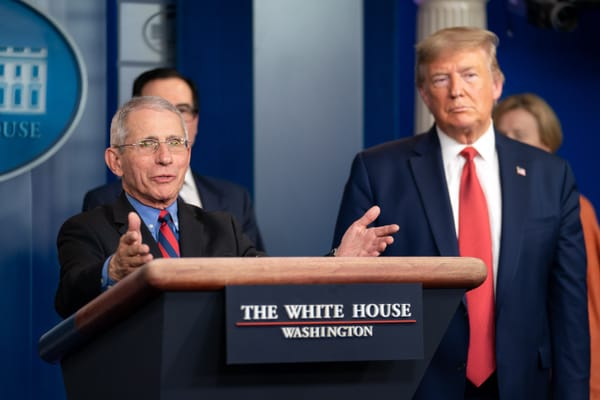Last week, The New York Times published a guest essay in praise of Dr. Anthony Fauci, written by Dr. Anthony Fauci. In this auto-hagiography, Fauci, who until recently served as director of the National Institute of Allergy and Infectious Diseases, or NAIAD, and as President Biden’s chief medical adviser, attempted to rewrite recent history.
“I never aspired to a major administrative position and relished my identity as a hands-on physician and clinical researcher,” wrote the man who at the height of the pandemic found time to pose for an InStyle fashion shoot. Fauci added: “I always speak the unvarnished truth to presidents and other senior government officials, even when such truths may be uncomfortable or politically inconvenient, because extraordinary things can happen when science and politics work hand in hand.” Just so: Extraordinary things certainly have happened under his watch when science and politics fused.
It was a remarkable piece of mainstream-media-powered mendacity—and a reminder of Fauci’s mastery of the ways of contemporary power. It’s that savvy that has allowed Fauci to maintain his unprecedented position of power and influence for almost four decades at the NAIAD division of the National Institutes of Health, notwithstanding his failures and dangerous power-grabs during the AIDS epidemic and the Covid pandemic. And it’s what impelled me to join a lawsuit against him in Missouri v. Biden, charging that Fauci and other senior officials in the administration violated the First Amendment’s free-speech protections by colluding with social-media companies to censor information that questioned the government’s favored Covid policies.
